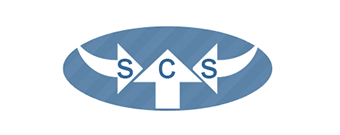Democratizing Data and #SocialMedia: Mass Meets Class

The effective use of social media, as well as
access to Big Data, should not be – it
shall no longer be – the exclusive province of global corporations with seemingly
endless marketing budgets and a near-constant presence on every relevant online
platform and feed.
For there is no reason why entrepreneurs and medium-sized
companies, from individuals with a passion for technology to organizations with
a commitment to engaging consumers, should face the false choice of mass versus
class; which is to say, there is no bar that prevents a business from reaching a
substantial audience with a customized message that is as elegant as it is eloquent.
Indeed, the latest chapter in the ongoing story of marketing and communications
is, perhaps, the most important section of all: The democratization of data and affordable access to experts fluent in the language
of the Web; professionals who forgo the generic for the specific, and apply the
power of creative design instead of the lazy conformity
of templates and a series of unremarkable illustrations.
I write these words from experience because, as
the founder of Ocoos.com, I know
that the barriers to analytics and design – and the obstacles to achieving credibility
through social media – are artificial and surmountable. Put another way, never have
so many choices been available to so many companies for so little (comparatively
speaking) expense.

What, then, should companies and consumers expect
from this phenomenon? How will this milestone revolutionize so many aspects of social
media outreach?
The answers to these questions will be a visual
delight for each viewer and a legible feast for each reader, where businesses can
move beyond the sort of predictable – and predictably boring – websites with their
(digital) paint-by-numbers appearance and their cut-and-paste prose.
We will also witness the sort of personalized
engagement, through the analysis and parsing of data, that consumers crave.
That means businesses can build brands – there
are plenty of the former, but few of the latter – that speak directly to the needs
and interests of a variety of individuals on behalf of a diversity of communities.
Gone will be the posting of sentence fragments
and links, which denote “busyness” in lieu of bespoke conversation; where one says
something that accomplishes nothing, while the other says the right thing, to the
right someone, for the right reasons.
I celebrate these changes because, above all,
these forces will make social media more dynamic and responsive.
These options will empower companies to demand
excellence rather than accepting the merely acceptable.
These rewards redound to everyone who wants a
better online experience, and anyone who seeks – and deserves to receive – a virtual
display of artistry, superior copy and supreme use of social media.
With these options
so readily available, there is no longer any cause for delays or excuses.
We have it in our power to shift the way companies
market their goods and offer their services, making one more accurate and the other
more intimate and respectful.
Businesses owe it to themselves to provide – and
customers owe it to themselves to let companies know they must deliver – a better
Web, infused with news and not noise; suffused throughout with social media marketing
that is as timely as it is compelling.
Welcome to the democratization of data.
Total Views: 1159
